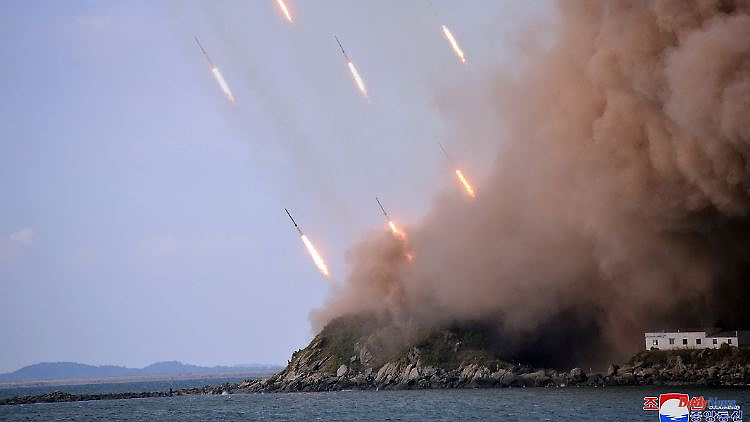Because North Korea repeatedly fired artillery at a demilitarized area in the sea, South Korea could terminate the joint agreement on the area. The country, which is supported by the USA, also wants to upgrade and no longer put up with airspace violations.
Amid increasingly strained relations with North Korea, South Korean President Yoon Suk Yeol has threatened to suspend the maritime buffer zone agreement between the two countries. The head of state has instructed his security advisers "to consider suspending the military agreement if the North carries out another provocation by violating our territory," said his spokeswoman Kim Eun-hye in Seoul.
Seoul and Pyongyang reached the agreement on the sea buffer zone at a summit in 2018 to reduce military tensions on their heavily secured shared border. At that time, both sides agreed to stop "various military exercises directed against each other at the demarcation line". North Korea repeatedly violated the agreement last year. In 2022, for example, the north repeatedly fired artillery into the buffer zone in the sea. Five North Korean drones also entered South Korean airspace last week.
According to his spokeswoman, President Yoon announced "large-scale production of small drones that are difficult to locate by the end of the year". In addition, a drone unit should be set up as an "overwhelming capacity for counter-offensives". The isolated North Korea is constantly expanding its arsenal of weapons and its nuclear capacities. The communist leadership in Pyongyang has repeatedly threatened a military escalation in the region.
In 2022, North Korea conducted an unprecedented number of weapons tests, including the November launch of its most advanced ICBM. At the turn of the year, Pyongyang fired short- and medium-range ballistic missiles, according to South Korean sources. According to North Korea's official news agency KCNA, it was a "test of the super-large rocket launchers".
According to expert Hong Min from the Korea Institute for National Unification, a suspension of the agreement on the buffer zone in the sea would mean a risk of "increased military tensions and an actual clash in border regions". Despite Pyongyang's violations of the agreement, it helped "prevent a major military clash."
South Korean President Yoon Suk-yeol also warned North Korea against another violation of its airspace. Another incident could result in a suspension of the 2018 inter-Korean military pact agreement.
Relations between South Korea and largely isolated communist North Korea have been strained for decades, but have become even more so because of the unusually high number of missile tests. When he took office in May, Yoon also announced a tougher stance on Pyongyang.












